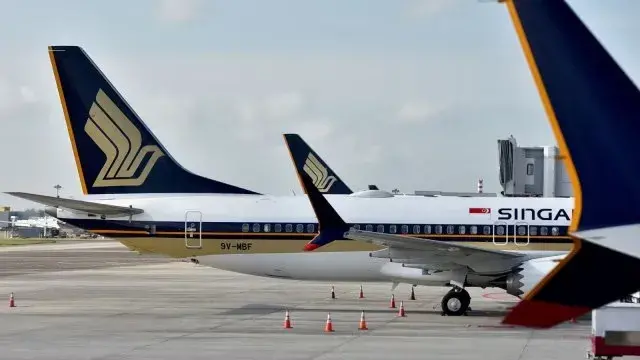Singapore Airlines Group announced on Wednesday that the proposed merger between Air India and Vistara is still awaiting foreign direct investment (FDI) and other regulatory approvals. The group emphasized that this merger will significantly enhance its multi-hub strategy and allow it to maintain a strong presence in the rapidly expanding Indian aviation market. Vistara is a joint venture between Singapore Airlines and the Tata Group, which also owns Air India. The merger, initially announced in November 2022, received approval from the Competition and Consumer Commission of Singapore in March and from the Competition Commission of India (CCI) in September 2023, albeit with some conditions. However, the completion of the merger still hinges on securing FDI and additional regulatory clearances. Once finalized, Singapore Airlines will acquire a 25.1% stake in an enlarged Air India Group. This merger is set to create a significant presence across all key segments of the Indian airline market, including domestic and international flights, as well as full-service and low-cost operations. According to the group, this strategic move will bolster Singapore Airlines’ multi-hub strategy and enable continued direct participation in India’s burgeoning aviation sector. The merger is poised to enhance Singapore Airlines’ competitive edge in the aviation market. In the fiscal year 2023-24, the group reported a 24% rise in net profit, amounting to 2,675 million Singapore dollars. This substantial increase in profitability is attributed to robust air travel demand, which drove record passenger revenue and load factors. The group also achieved the highest full-year operating and net profits in its history. Despite the positive outlook, Singapore Airlines noted several challenges facing the global aviation industry. Rising geopolitical tensions, an uncertain macroeconomic environment, supply chain constraints, and high inflation in many regions pose significant hurdles. Nonetheless, the demand for air travel remains strong in the first quarter of FY2024/25, with forward bookings to North Asia and Southeast Asia showing a marked increase. The anticipated merger between Air India and Vistara is expected to redefine the competitive landscape of the Indian aviation market. By consolidating their operations, the merged entity will be better positioned to leverage the strengths of both airlines, offering a more comprehensive and integrated service portfolio. This move is seen as a strategic effort to capture a larger share of the rapidly growing Indian aviation market, which has been one of the fastest-growing aviation markets in the world. Singapore Airlines’ strategy to maintain a significant stake in the merged entity underscores its commitment to expanding its footprint in India. The partnership with the Tata Group, a major player in the Indian business ecosystem, provides a robust foundation for this expansion. The merger is anticipated to create synergies that will benefit both airlines, enhancing operational efficiency and expanding their market reach. As the aviation industry continues to recover from the impacts of the COVID-19 pandemic, strategic mergers and acquisitions like this one are crucial for airlines looking to strengthen their market positions. For Singapore Airlines and Vistara, the merger represents an opportunity to consolidate resources, optimize operations, and offer a more competitive service to their customers. The pending merger between Air India and Vistara, while awaiting final regulatory approvals, is poised to significantly enhance Singapore Airlines’ strategic positioning in the Indian aviation market. The merger will create a stronger, more competitive airline group capable of capturing a larger share of the market and driving long-term growth. Despite the challenges facing the aviation industry, the outlook remains positive, with strong demand for air travel and strategic initiatives like this merger paving the way for future success.



